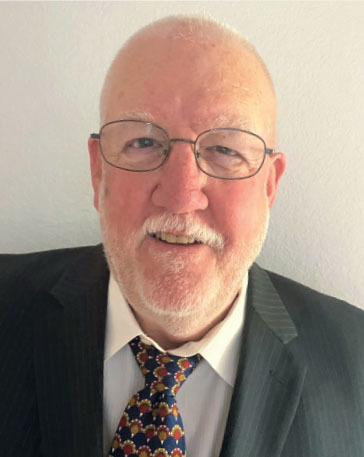April 2014
ON ETHICS
The End of Engineering
BY JON A. SCHMIDT, P.E., SECB
 What is the fundamental purpose of the engineering profession? The ancient Greeks would have called this its telos, commonly translated as “end.” Physicians pursue health; if humans ever attain perfect health, then doctors would be out of a job. Attorneys pursue justice; if humans ever attain perfect justice, then lawyers would be out of a job. What do engineers pursue? What perfection would humans have to attain in order for engineers to be out of a job?
What is the fundamental purpose of the engineering profession? The ancient Greeks would have called this its telos, commonly translated as “end.” Physicians pursue health; if humans ever attain perfect health, then doctors would be out of a job. Attorneys pursue justice; if humans ever attain perfect justice, then lawyers would be out of a job. What do engineers pursue? What perfection would humans have to attain in order for engineers to be out of a job?
Carl Mitcham argued that engineering has no such ideal that is “good in itself” and is well-embedded in its curriculum and practice. David Goldberg responded by claiming that Mitcham was simply reacting to the instrumental nature and ethical complexity of engineering. Serving a client’s interests will not always align naturally with serving the interests of society.
Henry Petroski has asserted that invention and engineering innovation are driven primarily by dissatisfaction with the current state of affairs. Would engineers be out of a job if humans ever attain perfect satisfaction? Presumably, but satisfaction is not an ideal on par with health and justice. Contentment might seem more suitable, but it is supposed to be independent of outward circumstances, and engineering deals exclusively with outward circumstances.
A better candidate might be quality of life. Would engineers be out of a job if humans ever attain a perfect quality of life? Probably, but practitioners other than engineers can and do contribute to quality of life. Furthermore, even within engineering, improving the quality of life for some people may diminish that of others; in fact, such tradeoffs are routine in the real world.
The ancient Greeks would insist that the telos of any worthwhile activity is to facilitate some aspect of eudaimonia, a word best translated as well-being. Favorable physical, social, and material conditions can be important factors for living a genuinely good life. Various professions are engaged in providing and maintaining such conditions. In fact, Ashvin Shah has suggested that the ends of medicine, law, and engineering are physical, social, and material well-being, respectively.
Along similar lines, Richard Bowen described the end of engineering as “the promotion of the flourishing of persons in communities through contribution to their material well-being,” while Ed Harris called it “the promotion of the material basis of human well-being or quality of life.” It is important to stipulate that the scope of this “social good” that engineering is supposed to foster is universal; engineers should conscientiously work toward the material well-being of all people, not just a privileged group.
What is material well-being? How do engineers bring it about? As philosophers Alison Ross and Nafsika Athanassoulis put it, “Engineering projects provide us with the technological means of overcoming some of the physical limitations that are a consequence of being human.” Engineering is “a profession that seeks to harness technological advancements to provide solutions to a wide range of social problems.”
This points to a specific factor that is crucial to understanding the ethical burden that engineers bear. Again quoting Ross and Athanassoulis: “Engineering projects are often innovative, long-term, and involve the coordination of so many different variables that it is impossible to predict absolutely accurately what their consequences will be. In addition, because of the scale and infrastructural nature of these projects there is often significant potential to do harm should something go wrong.”
Consequently, engineers assume a responsibility to determine which dangers are pertinent to each undertaking, decide how best to deal with them in spite of uncertainties, and inform everyone who needs to become aware of them. The basic societal role of engineering is the assessment, management, and communication of risk—the very real possibility that engineered projects and products could detract from the material well-being of some people, rather than enhancing the material well-being of all.
Jon A. Schmidt, P.E., SECB is an associate structural engineer in the Aviation and Federal Group at Burns & McDonnell in Kansas City, Missouri. This article is adapted from his forthcoming paper, “Changing the Paradigm for Engineering Ethics,” which has been accepted for publication in the journal, Science and Engineering Ethics.


 Volunteering at NSPE is a great opportunity to grow your professional network and connect with other leaders in the field.
Volunteering at NSPE is a great opportunity to grow your professional network and connect with other leaders in the field. The National Society of Professional Engineers (NSPE) encourages you to explore the resources to cast your vote on election day:
The National Society of Professional Engineers (NSPE) encourages you to explore the resources to cast your vote on election day:



